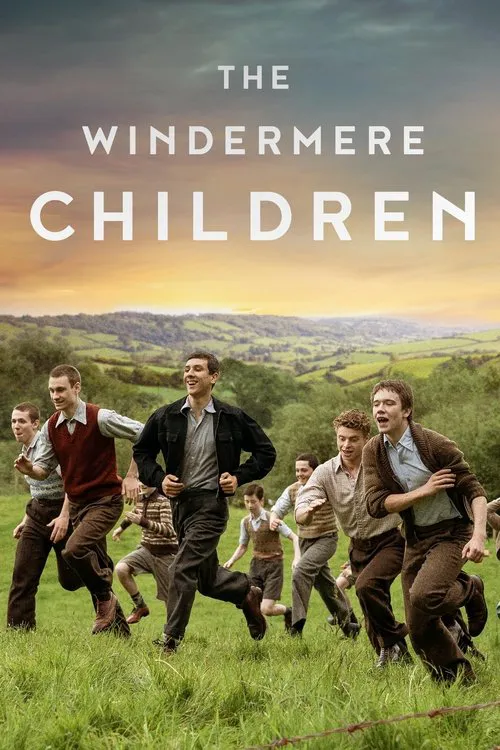The Windermere Children

Plot
In the aftermath of World War II, the world was left reeling from the devastating consequences of the Holocaust. As news of the atrocities spread, individuals and organizations came together to help those affected, and in the process, create new lives and hope for the children who had survived the unimaginable horrors of the concentration camps. "The Windermere Children," a poignant and evocative film, tells the story of a groundbreaking project on the shores of Lake Windermere in England, where child survivors of the Holocaust were brought together to heal and find solace in a new home. The film centers around a group of children, aged between 9 and 15, who had lost their families and livelihoods in the Holocaust. They were among the select few to be transported from the DP (Displaced Persons) camps to a small village on the shores of Lake Windermere in Cumbria. The camp, established by the British government and led by psychologist Dr. Anna Freud's colleague, Dr. Michael Rutter, aimed to provide refuge and care to these young survivors, offering a chance to rebuild and rediscover their humanity. Upon arrival at the camp, the children, ranging from Orthodox Jews to children of communist families and those who had spent time in orphanages, were initially overwhelmed and disoriented. They struggled to cope with the trauma they had endured, often manifesting in anger, sadness, and anxiety. However, under the watchful eye of their compassionate caretakers, the children soon began to open up, sharing their harrowing stories and forming bonds with one another. As the film progresses, the characters take center stage, each with their unique backstories and struggles. We meet children like Gisela, who had spent her early years in a Nazi orphanage, and then found herself in Auschwitz's notorious Lager Flossenbürg; Martin, who spent months in the Dachau concentration camp; and the quiet and observant, Jule, who had been separated from her family in a crowded train headed to the East. These children, among others, formed a makeshift family, drawing support and strength from one another as they navigated the difficult process of healing and adjustment. The Windermere children's experiences were not without their challenges. They faced initial racism and hostility from the locals, who were wary of the unknown children arriving in their town. The caretakers, led by Dr. Rutter, worked tirelessly to integrate the children into the community, ensuring that they received the medical and emotional support they so desperately needed. Through the film's masterful storytelling, we witness the transformative power of love, kindness, and compassion. We see the children blossom under the care of their guardians, learning to play games, sing songs, and engage in art therapy – simple pleasures that became beacons of hope in the midst of unimaginable trauma. We also witness the courage and resilience of the Windermere children as they confront their demons and begin to rebuild their shattered lives. The Windermere project was instrumental in laying the foundation for future therapeutic programs aimed at addressing the psychological impact of trauma on children affected by conflict and war. The groundbreaking work of Dr. Rutter and his team provided new insights into the effects of trauma on child development and paved the way for innovative therapeutic approaches. "The Windermere Children" is a poignant tribute to the indomitable human spirit and a powerful reminder of the ongoing need for compassion, empathy, and understanding. The film serves as a testament to the Windermere project's pioneering work, demonstrating the impact that dedicated care and support can have on the lives of those affected by some of humanity's darkest periods. Through its nuanced portrayal of this remarkable story, "The Windermere Children" offers a timely reminder of the importance of recognizing the struggles of others, and the power of collective action to forge pathways to healing and redemption. This moving and thought-provoking film serves as a bridge between two communities – past and present, victim and caregiver – a poignant reminder of the enduring resilience of humanity in the face of overwhelming adversity.
Reviews




